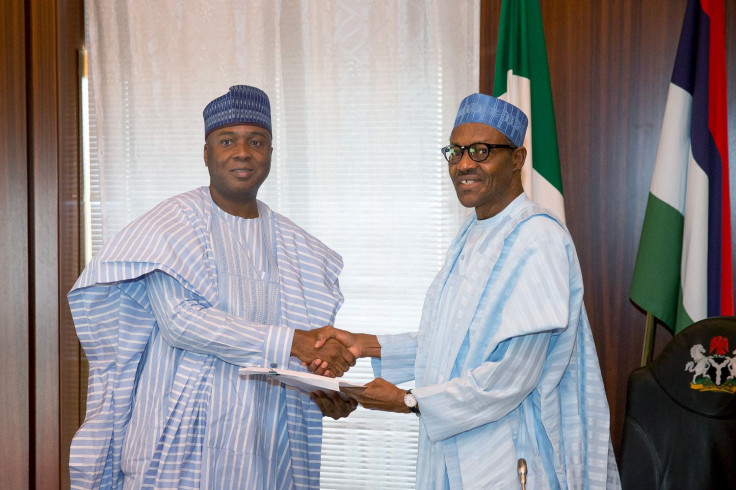Nigeria Social Media Law: Senate Bill Would Make It Illegal To Criticize Lawmakers On Twitter

The Nigerian Senate is defending a bill critics claim will clamp down on free speech, especially for social media users. The proposed law would allow for heavy sanctions against people who "falsely" criticize public officials or institutions, Nigerian newspaper the Premium Times reported.
The bill was sponsored by Bala Ibn Na’allah, a member of the ruling All Progressives Congress from Kebbi State, and has been widely panned for potentially limiting free speech and for allowing critics of lawmakers to be targeted. Lawmakers have said the bill is aimed at prohibiting "frivolous petitions" demanding investigations and stopping falsehoods, Quartz reported.
If the bill is passed, it would require critics accompany any future petitions with court affidavits, and if petitions were proved false, the offender could face jail time or a fine as high as $20,000, Quartz reported. Human Rights Watch, which said fines could be as high as $25,ooo and jail terms as long as seven years, has condemned the bill.
The bill also targets social media. Posts deemed abusive or intended to position the public against officials could land an offender jail time or a fine of $10,000. The Premium Times reported the social media section of the bill reads: "Where any person through text message, tweets, WhatsApp or through any social media posts any abusive statement knowing same to be false with intent to set the public against any person and group of persons, an institution of government or such other bodies established by law shall be guilty of an [offense] and upon conviction, shall be liable to an imprisonment for two years or a fine of N2,000,000.00 [$10,000] or both fine and imprisonment.”
Social media has become increasingly important among Nigerians, especially young people, who are politically active. The #OccupyNigeria movement in 2012, which sprung out of suddenly trebled gas prices, began online and grew into street protests.
The bill also has sections that would allow for fines against newspapers and other media outlets. The lawmakers said many stories published about them were untrue and damaging. During the debate of the bill, the Senate spoke out against what it said Thursday were untrue stories.
“We all support freedom of speech but as a Senate we should not be blackmailed," Senate President Bukola Saraki said. “You can’t write false stories just because it is social media.”
The proposed bill has moved through the Senate quickly, going through two readings in two weeks. In response to the bill, users on social media have begun using the hashtag #NoToSocial Media Bill to opposed the proposed law.
Nigerian Youth, let us begin to unfollow and block all the senators who are anti social media @MrAyeDee @DemolaRewaju #NoToSocialMediaBill
— 'Shina Damian (@damianshina) December 4, 2015
Yes, if many had their way, Nigeria would be taken to the dark and stone ages just so they can rule without checks #NoToSocialMediaBill
— Philip Asuquo (@PhilAsuquOtes) December 4, 2015
Guys, let's do this!!!!! #NoToSocialMediaBill #LeaveOurFreedom !!!! https://t.co/fBsUzo2ZGM
— JJ. Omojuwa (@Omojuwa) December 3, 2015
© Copyright IBTimes 2024. All rights reserved.












